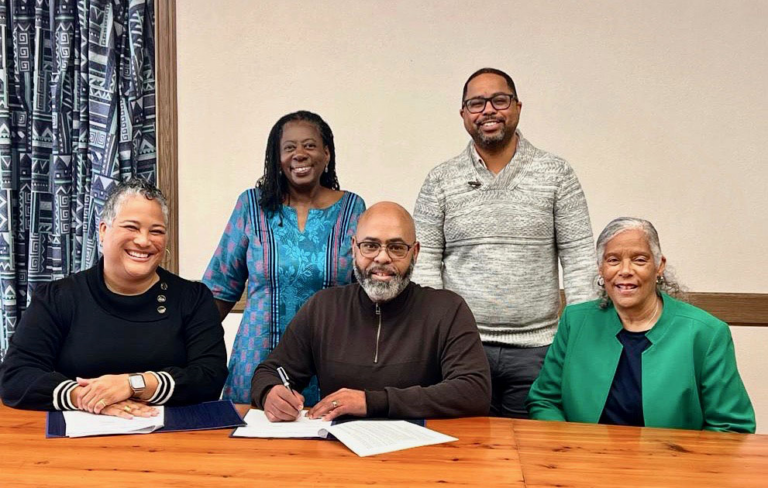For some high-flying students, the educational journey can seem like an uncomplicated story of exam success, lucrative awards and prestigious scholarships at top universities.
For many others, however, there are so many bumps in the road it can be difficult to keep the dream alive.
From disappointing test results to that piece of math homework that just doesn’t make any sense, at some point most of us experience moments when we think we’re not cut out for academic life.
The good news, as far as winning scholarships is concerned, is that you don’t necessarily have to be top of the class.
DON’T THINK SCHOLARSHIPS ARE NOT FOR YOU
Thaao Dill, the programme director at the Adult Education School, who helps students navigate the scholarships process, said: “One of the things that happens too often is that people who aren’t academic high performers automatically think, well, scholarships aren’t for me, because of my grades. They decide they’re never going to be able to afford post-secondary study or further training, and as a result their ceiling for achievement will always be low.
“That’s just not true. If you go to the Bermuda Scholarships website, you can search through their database of awards to see which ones have lower GPA requirements or don’t even have any. You can find the ones that are available to you, and you are just as eligible as anyone to apply for those.
“There are some scholarships that are particularly centred around the prefix of that word: they’re for scholars, the real high-performing academic folks. But there are many, many others that are not designed that way.
“Folks that might not be the highest academic performer – but are genuinely committed to finding their way into a successful life and are willing to do all the work necessary to make progress – can make those achievements.”
GIVE YOURSELF CREDIT
If you only compare yourself to the high-flyers, it can be easy to believe you’re falling short, even when you’re performing well.
“In school, if you’re not hitting 80 percent consistently or getting A grades, it’s easy to feel like anything other than that is an abject failure, when that’s just not true,” Mr Dill said.
“The hardest thing is recalibrating what success looks like. There’s no value in arbitrarily deciding what acceptable standards are.
“The real success is found when you’re making progress on your terms, in your way, on your time. If that means that you’re passing – maybe a solid pass but it’s not close to 100 percent – that’s still success.
“You’re getting what you need done, and you’re earning the grades, and the qualifications, and the progress, that gives you the same access to opportunity as anybody else.”
CELEBRATE SMALL VICTORIES
This philosophy is put into practice at the Adult Education School, on Dundonald Street, Hamilton, which relaunched in 2022 and has more than 70 active learners. Many learners have joined the adult school after finding academic success impossible in mainstream school.
Mr Dill said: “We’ve found that what helps bring them closer to academic success is that we celebrate their small wins as much and as often as possible.”
Every academic achievement – even a good score in a practice test – is highlighted on a whiteboard in the school entrance room.
“Their name is put on the board and everyone can see it,” Mr Dill said. “It’s a big deal. We make a fuss over it. The presence of this whiteboard is to highlight the incremental small accomplishments.
“It can be just 25 per cent of 25 per cent of earning your GED. Just the fact that they’re acknowledged in this way has caused them to individually feel really good. But we’ve also found that it means they’re much more likely to pass their next test.
“As a school, our overall timelines for completion have improved. We believe that this is at least something to do with the fact that we are celebrating all these wins all the time for each of the learners.”
PARENTS – BE REALISTIC
Parents can help by moderating their reaction to performance.
Mr Dill said: “For us parents, when our children are not successful in every way that feels sufficient, it can feel like your house is on fire. Everything has got to stop. It’s an emergency. It’s not about encouragement, it’s about correction. Our voices get raised and punishment gets involved.
“The most important thing is to not saddle up young people with guilt when they’re having some academic difficulties. Guilt and shame are counterproductive.
“If the young person feels as if they’re trying their best and still being disappointing, they might find it’s way easier just not to try at all.”
You should listen to your children’s goals and help set up simple goals that they can achieve to feel successful, whether that’s doing well in your mid-terms or getting an improved mark in your next essay assignment
“When you make things a lot more incremental step by step, it makes it easier to develop a pattern of success,” Mr Dill said.
“The more they win, the more likely they are to keep winning, and that will mean you can start expanding the goals out by raising the ceilings.
“Reduce the pressure, focus on the goals and celebrate the small wins as often as possible.”
For more information about the Adult Education School, email [email protected].

